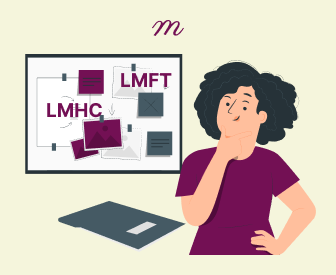Have your progress notes written for you automatically
You've likely heard the term "patient confidentiality" before, but do you know what it means for you as a mental health professional? In your role, you're privy to extremely sensitive information about your clients' lives, so maintaining confidentiality is crucial. But it's also complex. There are exceptions. In this article, we'll cover the ins and outs of confidentiality: why it exists, who it protects, and when you may ethically need to break it.
We'll provide guidelines and examples to help you navigate confidentiality issues. You'll learn how to balance your duty to clients with your duty to report. We aim to equip you with the skills to maintain your clients' privacy rights while fulfilling your legal and ethical responsibilities. If this information sounds useful, let's delve deeper into the topic!
The Importance of Therapist-Patient Confidentiality in Mental Health
Confidentiality is the cornerstone of providing effective counseling and psychotherapy services. As a therapist, your primary responsibility is to protect your clients' privacy rights. Confidentiality helps to build trust and openness between you and your clients, making it easier for them to share sensitive details about their lives, thoughts, and experiences. Upholding your clients' privacy rights is vital to establishing a solid and lasting therapeutic relationship. Without it, many people would avoid seeking counseling altogether due to fear of stigma, embarrassment, or legal consequences.
When Confidentiality Can Be Broken: Exceptions to the Rule
Therapists are responsible for keeping their clients' information confidential and private. This responsibility is a fundamental aspect of our profession and is also mandated by ethical and legal guidelines. However, there are instances when a therapist faces a difficult decision to reveal confidential information to protect their clients from potential harm. These exceptions may occur when the client's safety, rights, and welfare are at risk or when legal and ethical obligations require disclosing certain information.
Legally Mandated Reporting
As a therapist, it is crucial to maintain the confidentiality of your clients. However, there may be circumstances where you might have to disclose the information to protect the client or others around them. For instance, if a client talks about harming themselves or others, acting swiftly and reporting the incident to the relevant authorities is vital to ensure everyone's safety. In such situations, it is always better to err on the side of caution and provide all necessary details to local law enforcement or child/adult protective services to guarantee the safety and well-being of everyone involved.
Therapists and mental health professionals are legally obligated to report in several situations:
Child abuse or neglect:
All states require professionals to report suspected child abuse or neglect. This includes physical, emotional, and sexual abuse, as well as cases where a child's basic needs are not being met.
Elder abuse:
In many states, mental health professionals must report suspected abuse, neglect, or exploitation of elderly individuals who are unable to properly care for themselves.
Threats of violence:
If a client makes credible threats to harm themselves or others, mental health professionals are mandated to report this to authorities to prevent potential injury or loss of life.
Severe mental illness:
In some situations, clinicians may be required to involuntarily commit a patient for treatment if they pose a danger to themselves or others due to a severe mental illness. This is done to ensure the safety of the individual and community.
Court Orders and Subpoenas
It is crucial to understand that therapists must comply with court orders or subpoenas requiring the disclosure of confidential information. However, you must first inform the client of the situation and only disclose the information requested by the court. If a judge orders you to release client records or testify, you should educate the client about the importance of confidentiality and ask them to sign a release. If the client refuses to sign, you should only disclose the essential information and ensure that the client's privacy is protected to the fullest extent possible.
Protecting Yourself from Harm
As a rule, we always prioritize maintaining confidentiality for all our clients. However, in rare cases with a clear and present danger to our safety, we must put our well-being first and break confidentiality. If a client persistently harasses us, makes unwanted contact, or physically attacks us, we must immediately act. The best course of action is to end the client relationship professionally and seek advice from experienced colleagues on the best way forward before contacting the authorities.
However, we must be cautious and disclose only the minimum information required to resolve the immediate threat. Remember: we should only break confidentiality when all other options have been exhausted. Ultimately, we can better protect ourselves and our clients from harm by taking a proactive stance.
Consulting with Colleagues
Collaborating with colleagues can be incredibly beneficial as it can provide valuable insights and perspectives on a client's case, which can help us identify and address previously unnoticed issues. However, it is crucial to ensure that we only share necessary information while respecting the client's privacy and obtaining their consent whenever possible. As therapists, we must maintain professionalism and avoid disclosing personally identifiable information. Our advice or recommendations must be based on sound clinical judgment and evidence-based practice to provide the best possible outcomes for our clients.
In all these cases, be transparent and nonjudgmental. Focus on ensuring safety while minimizing disruption to the therapeutic relationship. After making a report, discuss the next steps together and how the client can work through their feelings about the breach of confidentiality. With an open, empathetic dialogue and acknowledgment of the client's perspective, you can navigate these challenging situations while upholding your duties as a therapist.
Having Open Conversations About Confidentiality With Clients
To establish a trusting and safe therapeutic relationship, open and honest conversations with clients about confidentiality are vital. By maintaining open lines of communication, addressing concerns, and conducting regular reviews of confidentiality limits, therapists can establish clear expectations regarding privacy while fostering strong, trusting relationships with clients. This level of transparency and trust creates an environment where clients feel comfortable sharing freely, enabling them to progress significantly in therapy.
Set Clear Expectations
Explain confidentiality, its purpose in therapy, and any limits or exceptions according to your state's laws and licensing board's code of ethics to your clients. Make it clear to your clients that you will maintain the privacy of their information. Still, you must notify the relevant authorities if they disclose any plans to harm themselves or others. Discuss how you will address requests for client information from third parties. This approach will enable your clients to understand what they can expect, making them feel more comfortable opening up to you.
At the beginning of therapy, educate your clients about confidentiality and its limitations. Explain your obligation to report suspected child abuse or neglect or any foreseeable danger to your clients or others. Make your clients aware that you may need to share information with insurance companies or during legal proceedings. Provide situations where you may need to break confidentiality and obtain their consent. This approach will help foster trust while setting clear expectations. If you must break confidentiality, have another conversation with your client. Explain the situation, why confidentiality must be broken, and the information that will be disclosed. Seek input and consent from your client whenever feasible. Afterward, discuss ways to proceed while maintaining the therapeutic relationship.
Address Concerns and Questions
It is vital to allow clients to ask questions about the confidentiality of their information and to address any concerns they may have. While you value their privacy, there may be situations where court orders or legal requirements compel you to disclose information. In such cases, reassure your clients that you will inform them beforehand if any requests for their records are made. Make it clear to them that they have the right to withdraw their consent for treatment if they become uncomfortable with the level of confidentiality provided.
Review Regularly
Therapists have an ethical responsibility to maintain confidentiality. Discussing confidentiality with clients continuously, not just during the initial session, is essential. Whenever clients disclose sensitive information or make changes to laws, it is necessary to review limits and exceptions. If clients express thoughts of harming themselves or others, therapists should remind them about mandatory reporting requirements. Regular confidentiality reviews build transparency and trust in the therapeutic relationship, creating an environment where clients feel comfortable sharing openly.
Conclusion
As a therapist, you have a significant responsibility towards your clients and society. The task is not easy, but by carefully navigating the complex situations that may arise, you can make choices that cause the least harm. We understand that confidentiality is crucial, and its limits can be daunting. However, with transparency, necessary precautions, and ethical principles, you can build trust, protect privacy, and ensure the best possible outcomes for your clients.
There may be times when you'll need to make difficult judgment calls and navigate gray areas. We want you to know that you're not alone in this. You can always consult with colleagues when needed and rely on your training, ethics codes, laws, and your own moral compass to guide you. We trust you'll navigate these situations skillfully with your clients' best interests. Always remember that you've got this! Your clients will appreciate transparency and the importance of safety, and we're here to support you every step of the way.
Take your practice to the next level by protecting client confidentiality and streamlining your workflow with Mentalyc! Our AI software is explicitly designed for therapists to generate compliant progress notes automatically, saving you valuable time and effort. Sign up today to ensure HIPAA compliance with every note, focus on your client sessions, and speed up your workflow, enabling you to see more clients. Experience how we can support you in upholding the highest standards of confidentiality and trust in counseling.
Mental Health Confidentiality FAQs: Your Top Questions Answered
As a mental health professional, upholding client confidentiality is a critical ethical responsibility. However, there are some situations where exceptions must be made. Here are answers to common questions about confidentiality and when limits may apply.
What does "confidentiality" really mean?
Confidentiality means that communications between a client and therapist will be kept private. Anything revealed in sessions or through other means will not be shared with outside parties without the client's consent.
Why is confidentiality so important?
Confidentiality is crucial for building trust in the therapeutic relationship. Clients will only open up and be vulnerable if they feel their privacy will be respected. Confidentiality also allows clients to speak freely without fear of judgment or retaliation.
Are there any exceptions to confidentiality?
Yes, there are some circumstances where confidentiality cannot be maintained. For example, a therapist must report suspected child abuse, neglect, or imminent harm to self or others. Therapists may also have to release records if subpoenaed by a court of law. In some states, therapists must warn intended victims if a client has communicated a serious threat of physical violence.
How do I discuss confidentiality with clients?
We suggest discussing confidentiality and its limitations with your clients during the first session. You should clearly explain your obligation to report any threats of harm and abuse. Additionally, inform your clients that their records may be disclosed if required by a court subpoena. While being transparent and honest, assure your clients that their privacy is paramount.
What should I do if I have to break confidentiality?
If exceptions arise, speak with your client first, if possible. Explain the situation, your policy, and why you must take further action. Seek advice from licensing boards or legal counsel regarding proper procedures. Document the events thoroughly and obtain written release of information when needed. Upholding confidentiality is an ongoing responsibility, even after limits have been reached.
How can I best protect client confidentiality?
It is essential to take all necessary steps to protect records and communications. This can be achieved by using encrypted digital files and password protection. To prevent sensitive documents from falling into the wrong hands, shred them before disposal. Be mindful of discussing client information publicly, and always lock file cabinets and offices when not in use. Keep informed about your profession's confidentiality standards and state laws, and regularly review your policies and procedures to address potential vulnerabilities. Ultimately, your diligence and discretion are crucial to ensuring the best protection for your clients.
What do I do if I have to breach confidentiality?
Maintaining client confidentiality can be a complex task with many nuances. However, you must uphold this responsibility by understanding privacy and its limits, informing clients properly, and handling breaches sensitively. If you determine that you must break confidentiality, we recommend that you discuss the situation with your client. Be clear and precise about what you have to report and to whom. While empathizing with the client, apologize for any distress caused and emphasize that you are obligated to report to protect their safety or the safety of others. Provide resources and offer to continue supporting the client through the reporting process. Remember, your clients' trust and well-being depend on your ability to maintain confidentiality while fulfilling your duty to protect them and others.
References:
American Psychological Association. (2019, October 19). Protecting Your Privacy: Understanding Confidentiality. https://www.apa.org/topics/psychotherapy/confidentiality
American Psychological Association. (n.d.). Ethical Principles of Psychologists and Code of Conduct. https://www.apa.org/ethics/code
Barnett, J. E., & Coffman, C. (2015, May). Confidentiality and its exceptions: The case of duty to warn. http://www.societyforpsychotherapy.org/confidentiality-and-its-exceptions-the-case-of-duty-to-warn
GoodTherapy. (2020, December 14). Client Confidentiality. https://www.goodtherapy.org/blog/psychpedia/client-confidentiality
Sills, D. (2023, August 28). Therapy and Confidentiality. Psychology Today. https://www.psychologytoday.com/us/basics/therapy/therapy-and-confidentiality
US Department of Human Services. (2022, December 23). Information Related to Mental and Behavioral Health, including Opioid Overdose. https://www.hhs.gov/hipaa/for-professionals/special-topics/mental-health/index.html










